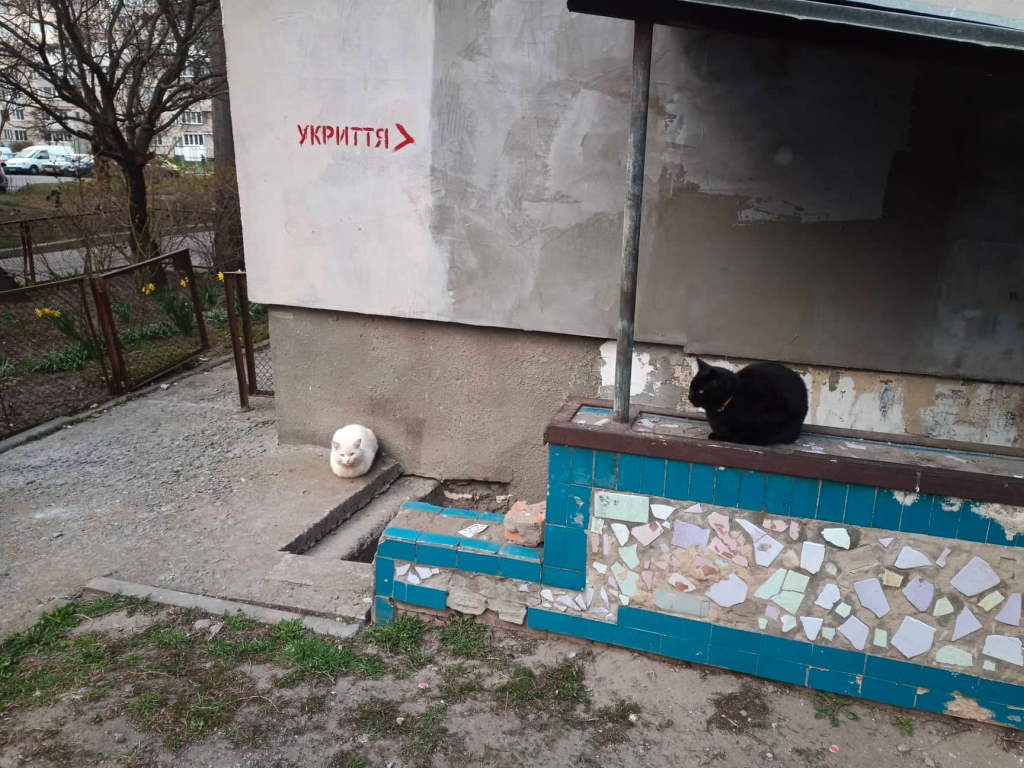In the post-war period, the war is perceived in mass culture as a time of heroes and victims. However, during the war, millions of people live, trying to save their life and health. User BruneiWMUA — Ukrainian Wikipedia administrator and biologist — tells a first-hand account about his personal, Wikipedian, and unheroic sense of war. Read more stories of Ukrainian Wikimedians during the war here.
I didn’t sleep on February 24. Around 4:30 a.m. I went to bed, and then I heard explosions. Thunder? Firework? The backpack was already packed, but where to run? What will the missiles hit next, where to hide from them? There was no time for sleep, there was time for thinking. It was logical to stay in Kyiv — a big city, capital of Ukraine that will be defended – and in a brick building. But if Russian multiple rocket launchers “Grad” and “Uragan” hit the squares… On the 10th day of the war, these risks increased — and I left for Western Ukraine with my relatives until the situation stabilized.
The life of a refugee is not sweet: you need to arrange your life from scratch, look for sources of inexpensive food. Therefore, in March, I practically did not edit Wikipedia. Unfortunately, I was not able to evaluate the international stage of the WikiScience Competition, where I joined as a jury member on the eve of the invasion.
And when I got used to refugee life, the question became: what useful things can I do for Wikipedia during this period. Write articles about our heroes? About enemy commanders and propagandists? About combat operations? I tried everything, edited the article “Russian Invasion of Ukraine (2022)”, but found that it was not for me. After all, for me, Wikipedia is a hobby, strengthened by the need to create free knowledge. Wartime volunteering came separately from Wikipedia. However, even during the war, you need to do the usual administrative work on Wikipedia: close discussions, delete pages, revert and hide vandalism, fight against copyright violations, help new users. In the absence of many active users, any help is welcome. Therefore, I contributed in this usual role.
During the war, I worked more than usual on English Wikipedia: started two articles on Ukrainian topics, made several corrections, participated in discussions. It is important to spread information about Ukraine in foreign languages, even if it is not easy.
In addition, I was inquiring about the lives of Wikipedians who remained in the occupation. I managed to comfort some of them with words, and some could get material support (including through the efforts of Wikimedia Ukraine).
As efforts towards decolonization intensified in Ukraine, I used my Wikipedia experience to help rename Kyiv toponyms named after Russian occupation narratives. Continuing my work on the history of Ukrainian science on Wikipedia, I offered my analysis to the Kyiv toponymy commission, which resulted in the renaming of several streets in honor of forgotten but outstanding scientists. Probably streets named after geographer Stepan Rudnytskyi and biologist Borys Balinskyi, erased from history by the Soviet authorities, will soon appear in Kyiv.
I think it’s most important during the war on Wikipedia to keep calm, follow the rules, help newcomers and constantly improve the quality of articles. After all, to create knowledge about Ukraine is to go against the aspirations of the aggressor. Wikipedia is the natural enemy of the information simulacrum generated by Russian propagandists. Reliable sources allow us to show the truth to the world. So, if you have time, write something about Ukraine on Wikipedia!

Can you help us translate this article?
In order for this article to reach as many people as possible we would like your help. Can you translate this article to get the message out?
Start translation
